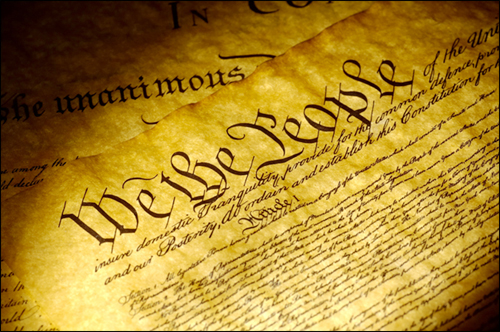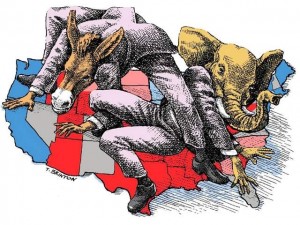
Majority Rule vs Minority Will
Lifestyle & Opinion December 5, 2011Thomas Jefferson once said, “Democracy is nothing more than mob rule, where fifty-one percent of the people take away the rights of the other forty-nine.” In light of recent “Occupy” activism, it is imperative that Americans spend time thinking about what it means to live in a democratic Republic.
A Republic is a state in which the supreme power rests in the body of citizens entitled to vote and is exercised by representatives chosen directly or indirectly by them. It is an apparent philosophy of the United States that the voice of the minority is to be protected. There is no better example of this than the Electoral College.
The founding fathers of our country wished to protect certain fundamental freedoms, such as freedom of speech and of the press, against the bullying of popular opinion. Congruently, they created the Electoral College to protect against a majority tyranny in the Presidential election. They wanted to clearly draw the line between will of the majority and despotism of the majority. The main difference between the two is that in an indirect election, like an election by the Electoral College, those in the minority have more rights than they would in a direct election.
Imagine a direct election in the United States. Realistically, candidates would only focus on the regions that had the highest populations. This would only make political pandering more intense, as candidates who could win the higher portions of California, New York, Texas, and Florida could win an entire election without regards to the other states and their needs.
The founding fathers understood that a direct election would lead to unequal protection under the law; the voice of the Midwestern, Southern, and Western states would go unheard because of their lack of population.
The truth is, just because the majority may be on one side does not mean that the individuals on the side of the minority are wrong. At one point, being a part of the ninety-nine percent may have meant on the side of slavery. Majority rules, right? At one point, being a part of the ninety-nine percent may have meant the upholding Jim Crow laws. Majority rules, right? At one point, being a part of the ninety-nine percent may have meant believing the earth to be flat-or believing in an earth centered universe. Majority rules? Wrong.

